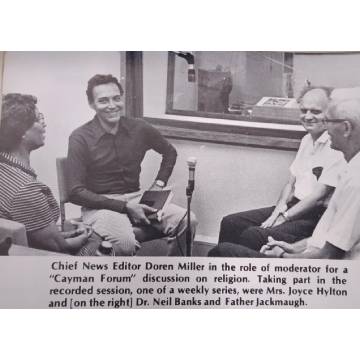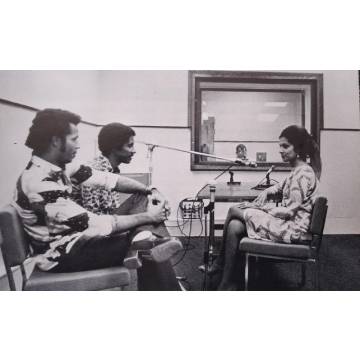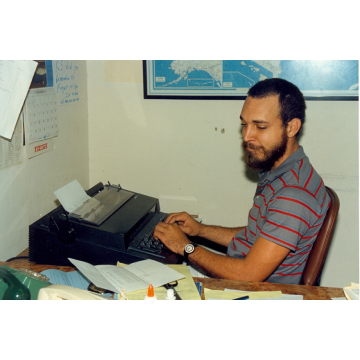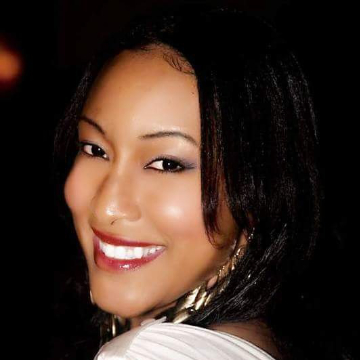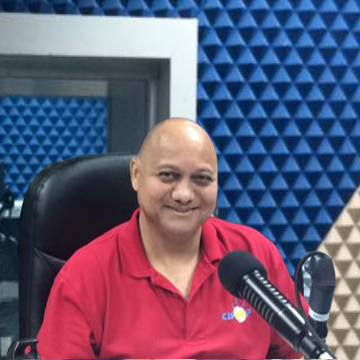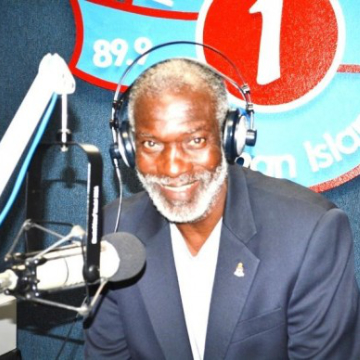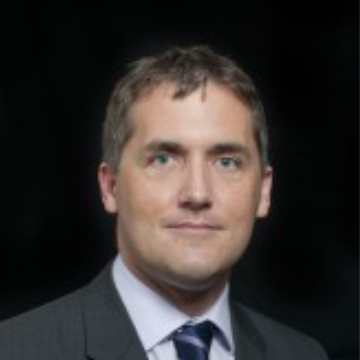News
Former CCMI Director Joins UCCI

The founder and longtime President and CEO of the Central Caribbean Marine Institute has joined the University College of the Cayman Islands as a visiting scholar and research professor.
Carrie Manfrino, who led CCMI for 22 years, is retiring from her post there. She won’t, however, be retiring from the work of a scientist and part of what she will be doing is promoting STEM careers and creating science-based projects that will likely involve students at UCCI.
Manfrino is no stranger to higher education. In addition to her role at CCMI, she served as an associate professor at New Jersey’s Kean University from 1995-2016 and was a visiting professor at Rutgers University and the University of Florida. She doesn’t intend to regularly teach at UCCI but plans to do some guest lecturing.
“I will be doing research and developing projects under the auspices of the university,” Manfrino said. “The opportunity to strengthen science and technology in higher education has always been important to me. In my mind, the increased emphasis on STEM at UCCI is a key strategy that can help diversify our future local workforce.”
Much of her focus, she said, will be on issues connected with climate change and sustainability.
UCCI President and CEO Stacy McAfee said Manfrino’s addition to the faculty is a step into a new area.
“We’ve had visiting professors in the past,” McAfee said, “but this is the first time we’ve taken on someone who will specifically be working in a research capacity. It’s an exciting new piece of UCCI’s evolution and we’re looking forward to the kind of collaborative projects Carrie will be able to put together, both with local participants as well as partners from the international community.”
She said, Manfrino’s reputation as a published international scientist will bolster UCCI’s profile and her presence will tie in well with the new STEM building that is currently in the planning stages.
“I think we will be able to attract more interest in UCCI from abroad, which will allow us to showcase our programs and build even more new partnerships for the future.”
Manfrino said she is working on a project that is looking at how the socio-economic impact of the Covid-19 pandemic may be affecting conservation.
“The existential threats to our economy and future are climate change and pandemics,” she said. “We are beginning to understand the compounding impacts that these threats have on nature. We want to understand how can we better weather future crises? My bigger goal is to help build our capacity to address this enormous issue locally.”
While it is a shift from her work at CCMI, she said, the work that originally got her involved in marine biology was surveying the coral populations across the Caribbean. Those populations were being severely impacted by both human activity and the rise in ocean temperatures, part of the effects of climate change. Her research had previously looked at the evolution of ancient coral reefs in response to climate change.
That original survey followed the completion of her doctorate in geology and geophysics from the University of Miami in 1996. She earned her master’s in geology from the Colorado School of Mines and a bachelor’s in the same subject at the University of Colorado, Boulder. In 2016, she spent a year as a Fulbright scholar at the University of Ruhuna, in Matara, Sri Lanka, studying corals in the Indian Ocean.
From its founding in 1998, Manfrino has been president and CEO of CCMI and its director of research.
She sees great potential for building more science and technology programs in Cayman and one doesn’t necessarily have to look far for resources. At her home in Little Cayman, she said, the couple that live to one side of her are a molecular biologist and a plant biologist. Aother neighbor is an engineer. She hopes to involve such local talent in her programs, as well as bring in experts from outside of Cayman.
We have to get our students excited about this,” she said. “We have to show them that there are rewarding careers in science and technology and this is where the jobs in the future will be.”
The idea, in the end, she said, is to help build a new generation of science and technology oriented leaders. As more young Caymanians gain exposure to critical thinking and problem solving they can begin to innovate and tackle current and emerging issues facing the Caribbean.”


